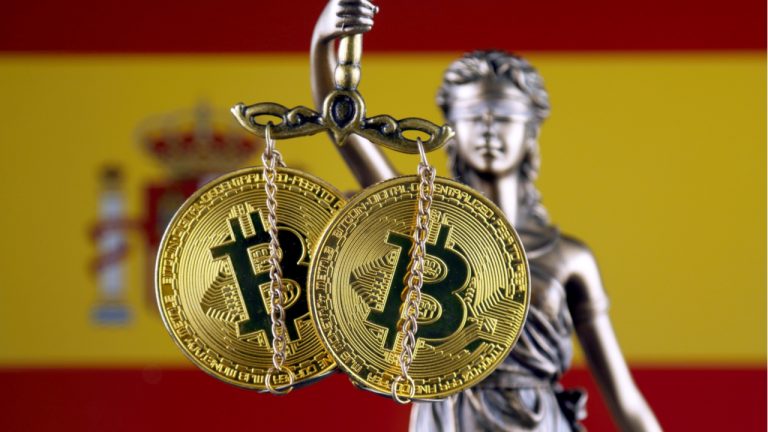
Mica Law Draft Designates CNMV and Bank of Spain as Crypto Watchdogs

The latest Mica (Europe’s Markets in Crypto-Assets Regulation) revision designates the CNMV and the Bank of Spain as the main cryptocurrency watchdogs in the country. The draft also stipulates that companies offering services in the EU will need to be based in a European country. The norm excludes NFTs, for now. Experts state the law might be in advanced stages by the end of this year.
Bank of Spain and CNMV Designated as Default Crypto Watchdogs.
Mica (Europe’s Markets in Crypto-Assets Regulation)’s latest draft had an update recently, bringing about many changes. For one, the law designates the Bank of Spain and the CNMV (National Stock Market Commission) as the default cryptocurrency watchdogs in the country. However, the ECB will be the institution designated to rule over crypto assets in the EU.
Other interesting changes have to do with the regulation of NFT’s. As it stands now, these tokens would be outside the scope of the regulation. This is because exchange value seems to be subjective and difficult to set. The new draft sets a low bar for current banking institutions to offer cryptocurrency-based services. This means banks will not have to go through tough requirements, because they already comply with them. However, brokers and investment companies will have to start from scratch.
Also, cryptocurrency-based companies offering services to Europeans must be located in the region to offer their services. With this measure, the EU wants to bring protection to its users by having service providers within its jurisdiction.
Mica Draft to Be Ready for Next Year
This new draft accelerates the regulatory process, and some experts are now expecting Mica to be ready for 2022. However, the latest draft still has some pending issues. The ECB has not yet committed to an official definition of “crypto asset.” This is said to be needed to avoid contradictory legal interpretations in the future.
Also, the implementation of this law will supersede current regional regulations already in effect in some European countries. As such the new Mica draft must specify what the procedures will be in those cases. Central bank digital currencies, like the future digital euro and the already launched digital yuan, would not fall under the jurisdiction of this law.
Spain has been especially drastic with its stance on cryptocurrency, targeting tax evaders leveraging digital assets. Last month saw the emergence of a draft law approved by the Finance Commission of the Spanish Congress which would force custody providers to produce information about their customers and their holdings.
What do you think about the latest Mica draft? Tell us in the comments section below.
Go to Source
Author: Sergio Goschenko









